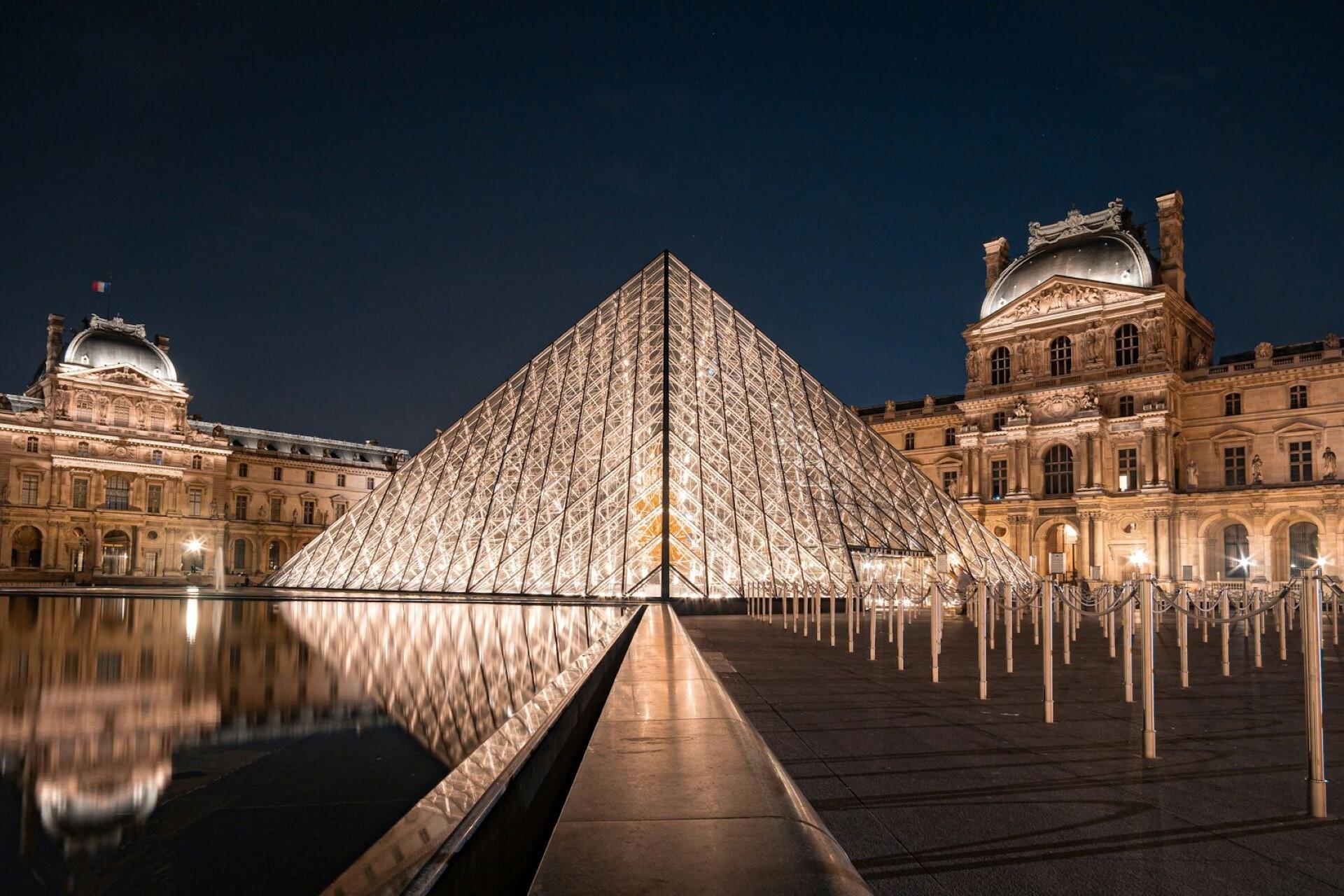France is the most civilized country in the world and doesn't care who knows it.
John Gunther, American journalist and author
Are you looking to learn French or just interested in France?
While you could always check out some of our fun facts about France, we have plenty of interesting facts here.

1. France's Hidden Volcanoes: The Massif Central
While France has plenty of volcanic territories and island nations, there are also volcanoes in the centre of France.
Central France, mainly the Massif Central mountain range, doesn't always live up to its name. After all, thousands of years of erosion have left certain parts anything but "massive".
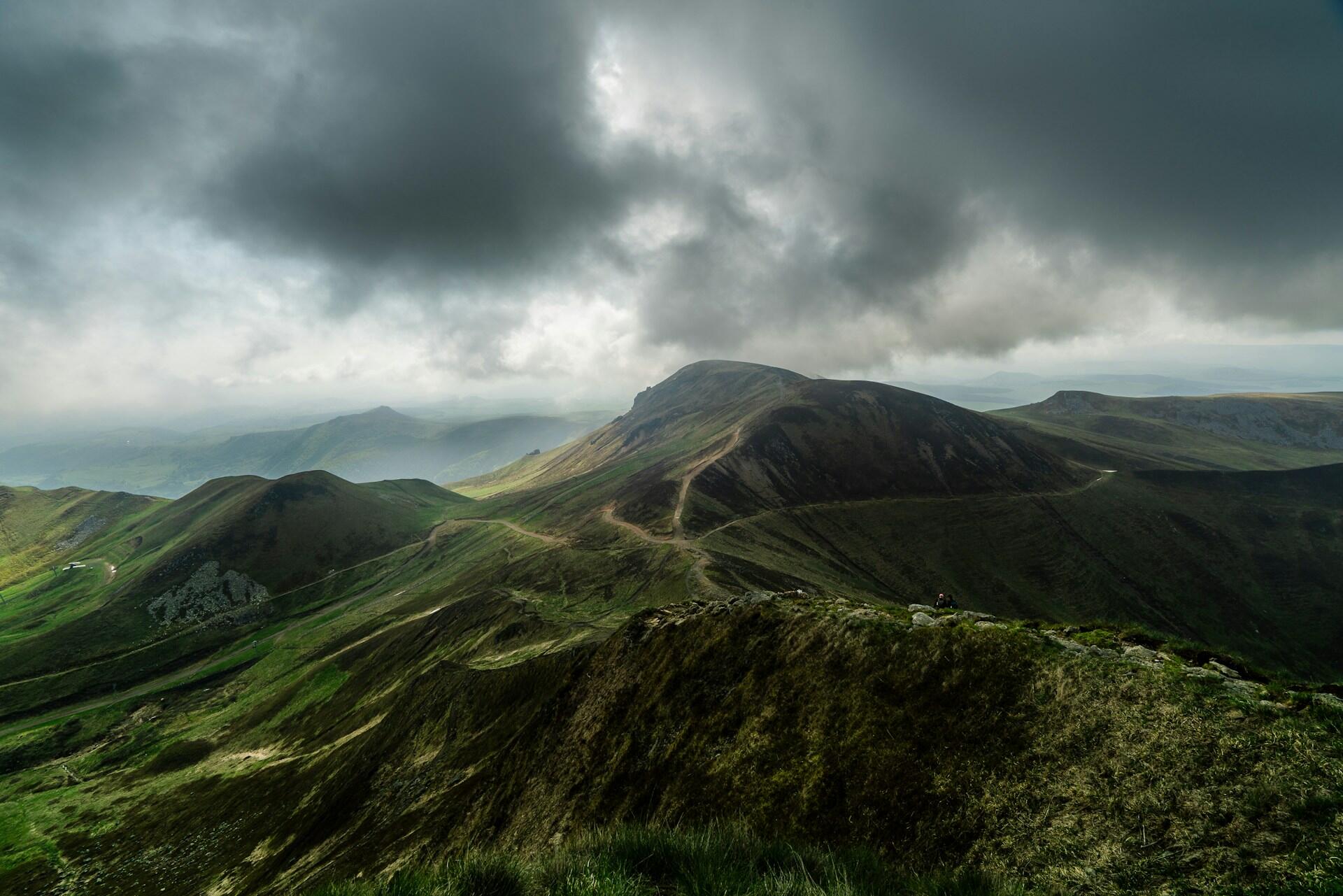
However, this mountain range is older than the Alps and the Pyrenees, and some of these mountains used to be active volcanoes. Don't worry about this anymore since the last time these volcanoes erupted was around 6,000 years ago!
The Massif Central region of France is home to more than 500 extinct volcanoes, forming one of Europe’s most remarkable volcanic landscapes. Though dormant for thousands of years, these ancient giants still shape the country’s geography and attract hikers, geologists, and curious travellers.
2. Before French, Gaulish Was the Language of the Land
If you know anything about French, you might know it's a Romance language related to Latin. Before the Romans arrived in France, the language spoken at the time was Gaulish.
The people living in France then were Celts related to the same Celts from Britain and Ireland. Their entire mythology and lifestyle were similar. Their Gaulish language resembled Celtic languages like Old Briton, Welsh, and Cornish. However, it did differ from the Celtic languages that would eventually evolve into the Manx, Scottish, and Irish languages.
This language was spoken all over what is now France (at least the mainland). The only place it wasn't spoken was in Aquitaine, where an earlier version of the Basque language was being spoken.
In modern French, very few Gaulish words have survived, with less than 200 and their derivatives being used. Instead, the Latin language prevailed.
Interested in French history? Watch this video.
3. Early French Kings May Have Practiced Polygamy
When the Roman Empire collapsed, many areas of Europe dramatically changed, including France. In this power vacuum, Germanic tribes could migrate across Europe, founding new countries as they did.
The Franks were the most successful in what is now France. They set up a kingdom that spanned much of Western Europe, covering areas now in France, Belgium, the Netherlands, and Germany.
France's first and most famous kings were the Merovingians. This was supposedly a Christian kingdom, but it was suggested that these kings would marry several women. Whether this was polygamy or simply remarrying is debated amongst scholars and historians. Some believe they didn't have more than one wife at a time, while certain dates and records indicate an overlap between several wives.
4. Versailles Was Lavish But Not Always Clean
Knowing what we know about sanitation, it's safe to say that even 17th-century courts under European monarchies were hardly the cleanest places.
Despite their opulence, sanitation was dealt with by either an "out of sight, out of mind" approach or by covering it up with more pleasing (and more powerful) scents. The French court under King Louis XIV was famously smelly.
visit France every year.
However, the Palace of Versaille (château de Versailles in French) was built to be away from the stink and the angry mobs of Parisians, who famously were rarely fond of the aristocracy.
It's been suggested that the splendour of Versailles was to distract people from the lack of hygiene, with eyewitness accounts mentioning unwashed bodies and urine and feces in the palace and its surrounding gardens.
However, Versailles did have bathing rooms and public baths. At a time when prolonged immersion in water was said to spread diseases, most would wash with a damp towel soaked in water or perfume.
Despite the accounts, there were public bathrooms in the Palace of Versailles, with a capacity of 300 people. Guests could also ask servants to bring them their toilet chairs if they couldn't make it.
Though it wasn't invented in Versailles, a toilet with running water existed there from 1727. Drainage and sewage pipes also moved waste away from the palace and into the surrounding marshes.
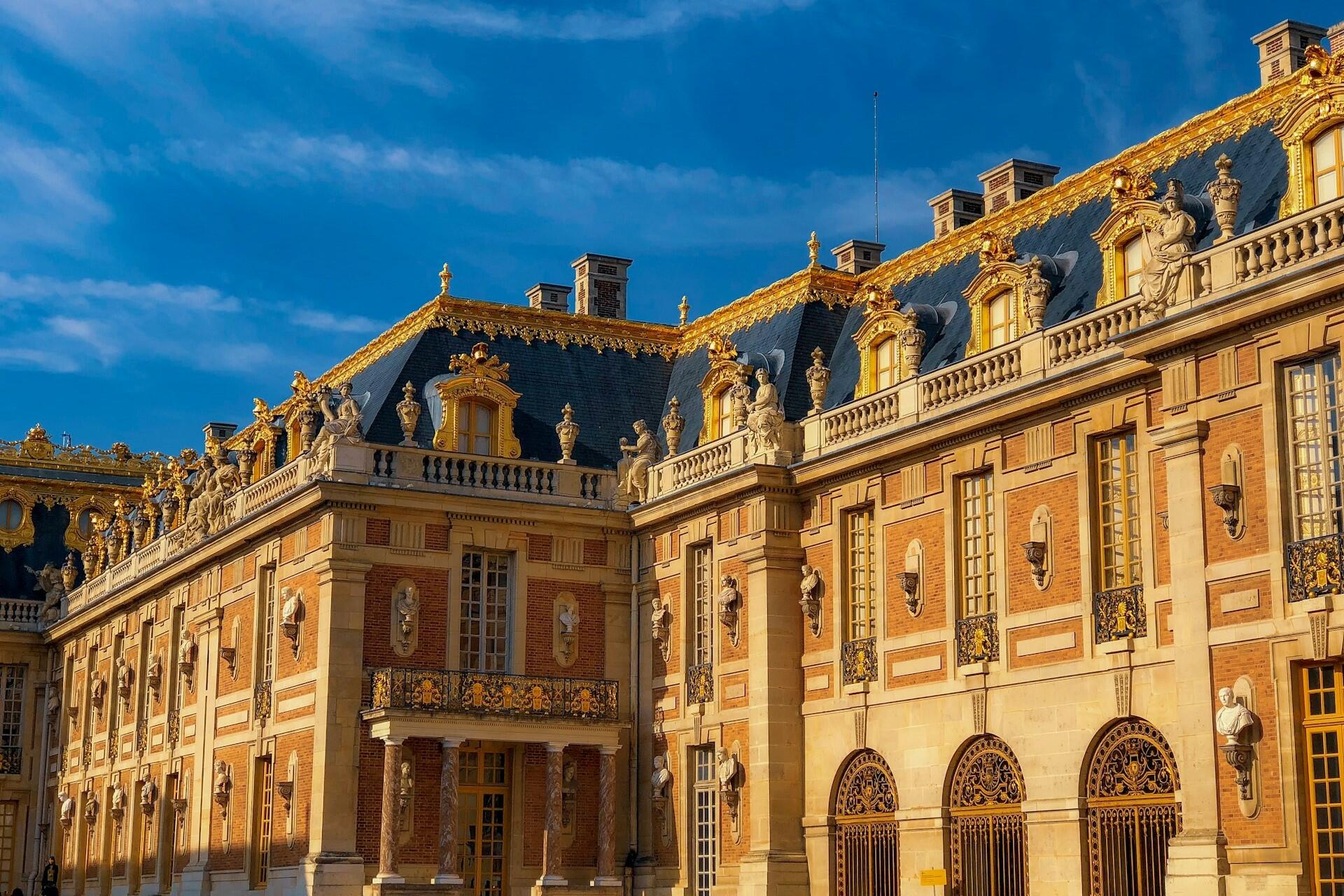
So, with some of the best facilities in the area, why was the Palace of Versailles so famous for filth and unpleasant odours? It's suggested that the events here were popular and well-attended and guests would rather take care of certain things where they were rather than risk losing their seat.
It's also thought that many guests might not have known about the facilities or that it simply wasn't a common practice, so when they visited, their behaviour was in keeping with the common culture they were used to.
It's interesting to think about, especially if you visit Versailles or any other of France's famous châteaux, which certainly look incredibly ornate, that many could have been incredibly disgusting if you attended on the wrong days!
Find out more about the French Revolution in this great video.

5. French Schools Exist in Over 130 Countries
At one time, French was the lingua franca, the default language people spoke to one another when they didn't know each other's mother tongues. While this may have been replaced by the English language, there are still plenty of French speakers worldwide.
The French language is naturally spoken in its country of origin, France. However, it's also spoken in many of France's former colonies and neighbouring countries and by those who will either politically, diplomatically, or financially have to interact with French speakers.
The French government established French schools all over the world. First, these schools were established in French colonies like Martinique, Guadeloupe, French Guiana, and former colonies across Africa.
These schools, known as the Lycées Français, follow the French curriculum, so students are taught as if they were in France, take French exams, and gain qualifications issued in France.
This is particularly useful for French citizens who move abroad as it means their children can continue their education without interruption, picking up exactly where they left off in a new country.
It's particularly popular with diplomats, who need to move quite regularly to another country for a limited time.
French is one of the few languages spoken across all five inhabited continents. With over 300 million speakers worldwide, it remains a major global language in diplomacy, education, and international business.
6. French Toast Was Born From Leftover Baguettes
Plenty of things we say are French aren't from France. French fries are a Belgian invention, the French press is Italian, and the French horn is German.
French toast is one thing we call French that is actually from France. However, that's not what they call it in France. Before you say they call it toast, they call it "lost bread." Your typical French bread, baguette, or similar will go stale quickly. This is because French bakers rarely use preservatives, and they typically buy a baguette daily.
If the baguette or bread goes stale and would otherwise be lost, French toast can rescue it. Before frying it, you can soak the bread to soften it up with some milk and eggs. French toast is then typically served with butter or honey.
While it's true that the French eat a baguette quite frequently and consume a lot of cheese, most of the food most commonly associated with France is only consumed in small quantities or at special events. Snails aren't eaten nearly as often as many would think, and the average French person won't eat frogs' legs regularly!
different types of cheese.
7. There’s a Secret Apartment in the Eiffel Tower
The Eiffel Tower, the most famous landmark in Paris and France, was built for the 1889 World Fair. The designer and engineer Gustave Eiffel is probably most famous for the Eiffel Tower, but he was also involved in the Statue of Liberty in New York City.
While we often think of the Eiffel Tower as synonymous with Paris and France, much like the Louvre and the Arc de Triomphe, it was supposed to be dismantled after twenty years.
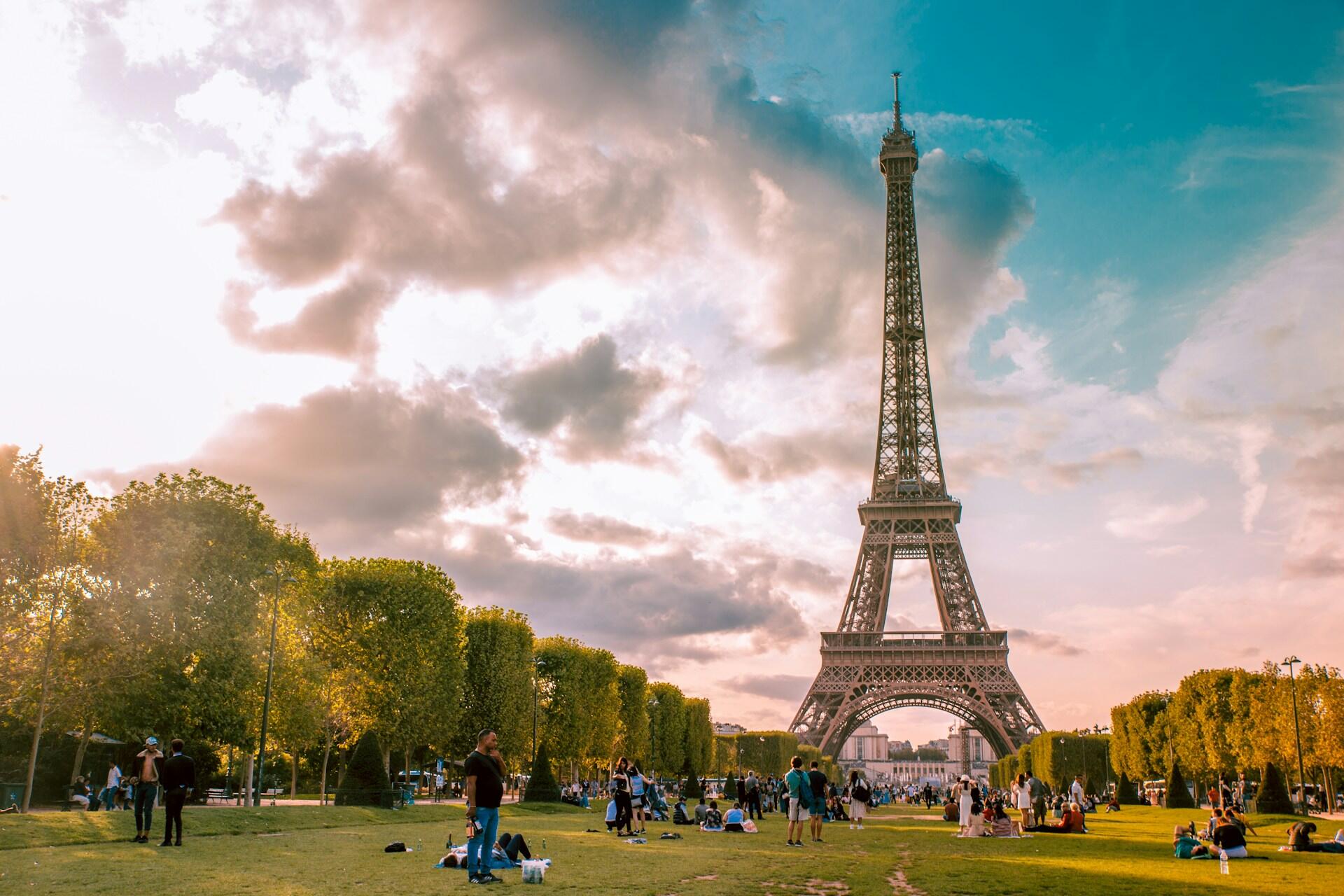
While the Eiffel Tower certainly isn't a hotel, it does have an apartment. Gustave Eiffel built a private apartment in the structure, and scientists and intellectuals would visit it. Many people offered him a fortune to rent the apartment, but he never accepted.
The apartment on the Eiffel Tower's third platform can be visited by the public and includes wax figures of people like Gustave Eiffel and Thomas Edison (one of the visitors) to the room.
Planning to visit the Eiffel Tower? Book your tickets online in advance to avoid long queues, especially during the summer season. Better yet, visit early in the morning or just before sunset for stunning views and fewer crowds.
8. Trout and Bees Call the Paris Opera Home
The Parisian Opéra Garnier famously has an underground lake where trout are bred. Since the opera house is heavy and Paris has a high water table, the opera's cellar would regularly flood. To avoid this, the architect created an area with stone columns into which the water could flow when the water table was particularly high.
This underground lake had trout kept in it. While this is no longer the case, beehives are on the roof. Visitors can buy honey made by the opera's bees in the gift shop.
You can visit the opera house, but the tour unfortunately doesn't include the lake.
9. French Is Still an Official Language in Parts of India
Throughout French colonial history, the French language was introduced to many places worldwide. Most people know that French is spoken in parts of Africa, the Caribbean, and Canada, but did you know that it's also spoken in India?
With fighting in India and several European powers looking to take advantage of the chaos, France ended up with the regions of Punducherry and Chandannagar.
When the rest of India gained independence, the regions were returned to India, but French is the official language of those provinces.
10. France’s Flag Colors Have Royal Roots
The cockade worn by French revolutionaries, which formed the foundation for the French flag, was also blue, white, and red. However, initially, these revolutionaries wore blue and red cockades, like the Paris flag.
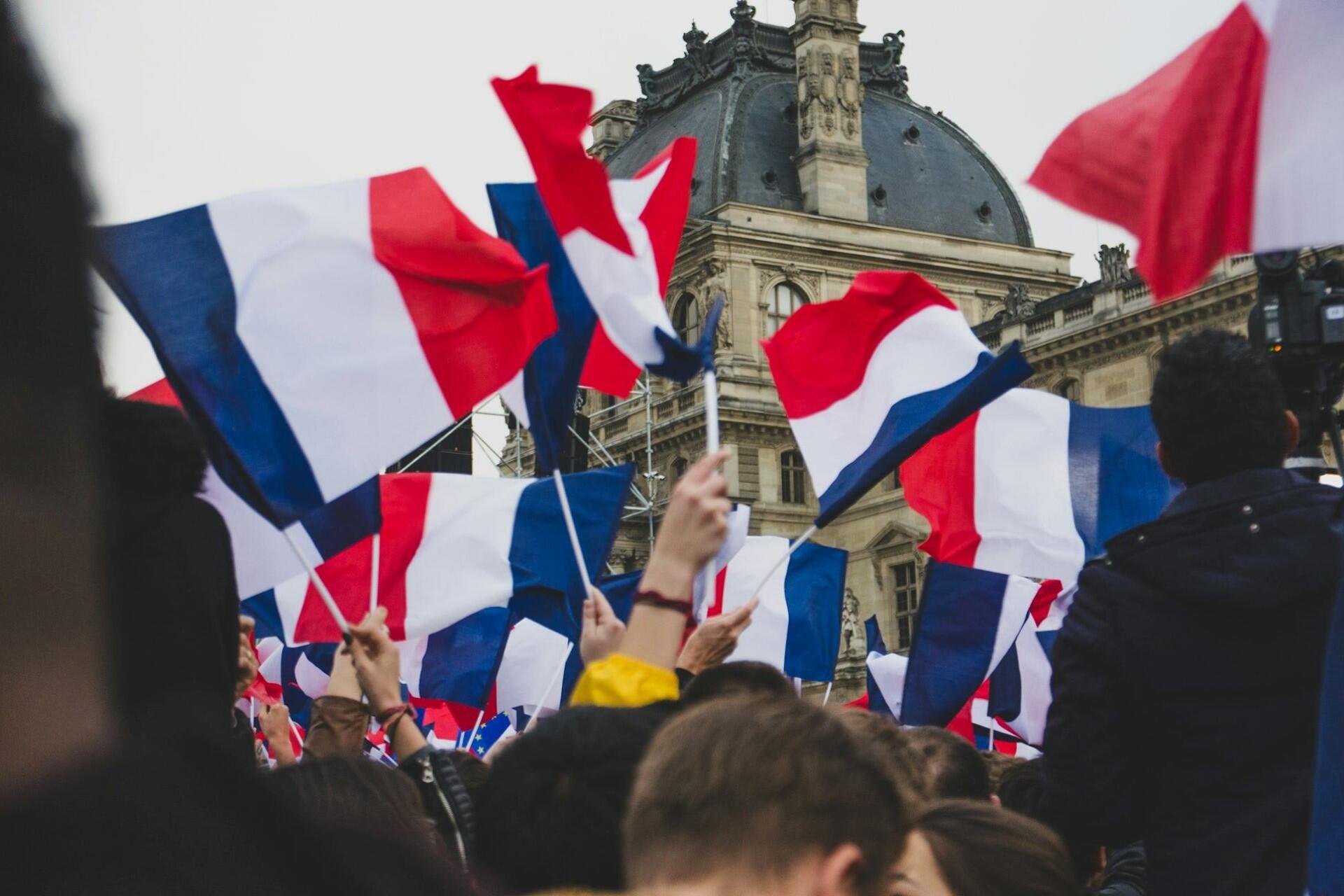
General Lafayette suggested that white be added to represent royalty, like the royal arms that featured blue, white, and red.
From underground lakes in opera houses to hidden apartments in monuments like the Eiffel Tower, it's clear that France is a country that's full of surprises. Sure, there are still the clichés of wine and cheese, with plenty great versions of each to go around, but there's more to the country than just that.
What makes France so special is how it blends centuries-old traditions with modern innovation, and some of these quirky facts. Then there's French art, fashion, and philosophy that continue to shape the world.
If you'd like to learn more about France's history, culture, or language, look for private tutors on the Superprof website. With most offering the first session for free, you can try a few before choosing the one that's right for you, your budget, and your learning style. You can find private tutors in person across New Zealand or online, and learn with a tutor who's actually in France right now!
Summarise with AI:

